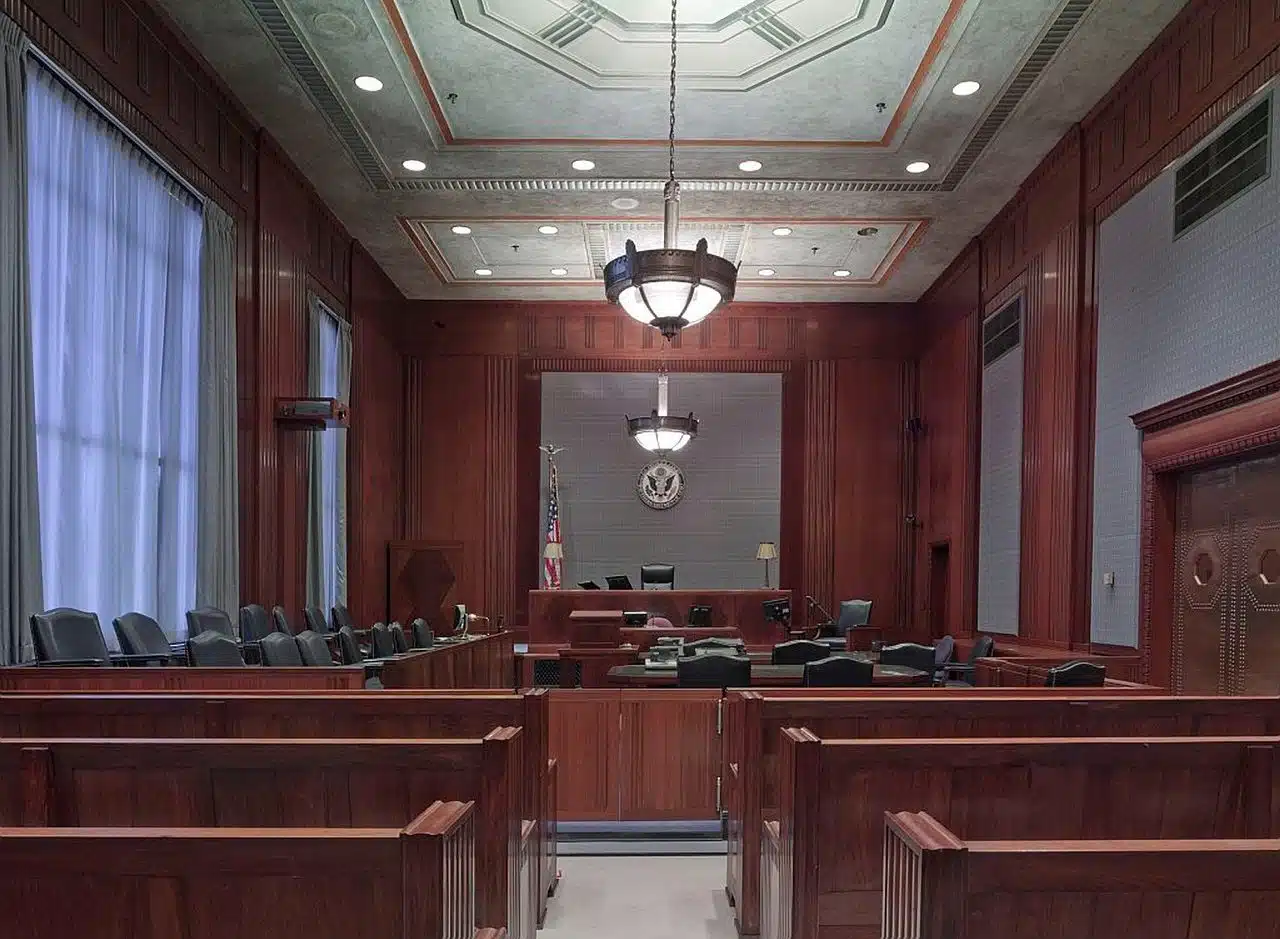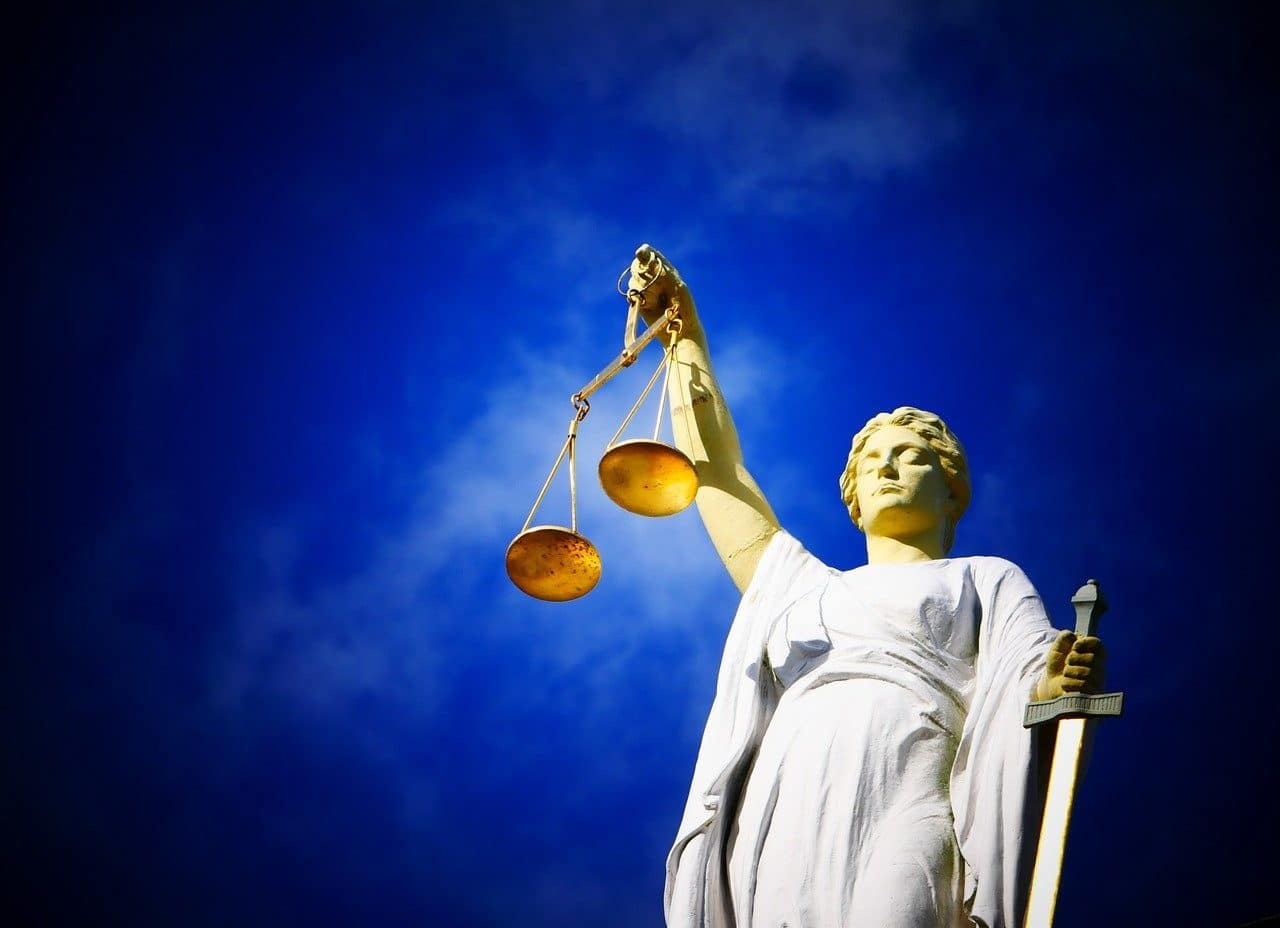
Litigation may begin with an accusation and end with a sanction or an agreement between the parties.
The term litigation is a legal dispute between two or more parties seeking to resolve a dispute through court or another formal dispute resolution process. The parties involved may be individuals, companies or other legal entities, and the dispute may involve a wide range of legal matters, such as breach of contract, civil liability claim, divorce case or employment dispute.
Litigation generally involves a series of legal steps, including the filing of lawsuits, the exchange of evidence, court hearings, and ultimately the issuance of a decision by the court.
Parties involved
In litigation, there are several parties involved, each with specific roles they play in the legal process.
Demanding
File the lawsuit or claim before the court . He seeks a resolution in his favor and is generally the one who considers that he has suffered some type of damage, harm or violation of his rights.
Defendant
The party against whom the lawsuit is filed. It is accused of having caused the damage, harm or having violated the rights of the plaintiff. You must respond and defend your interests in the litigation.
Lawyer
Legally represents the parties involved in the litigation. The plaintiff 's attorney presents his case to the court and defends his client's interests , while the defendant's attorney seeks to refute the plaintiff's claims. Both play a crucial role in preparing legal arguments, presenting evidence and representing their clients during the court process.
Judge
The authority responsible for administering justice and making impartial decisions in litigation. It supervises the proceedings, interprets applicable law, and decides on legal issues and factual disputes presented by the parties. Their role is to ensure that the process is carried out fairly and in accordance with the law .
Witnesses
People who have relevant information about the facts that are disputed in the litigation. They may be called by either party to testify under oath about what they know or have witnessed. Your statement can help support or refute the defendant's and plaintiff's claims, and are important in establishing the facts in the case.
Experts
Experts in specific areas who may be retained by either party to provide specialized opinions or analysis on technical, scientific, medical, financial or other fields relevant to the case. They may present written reports and testify in court to help the judge or jury understand technical or complex aspects of the litigation. Your testimony may be crucial to the resolution of the trial.

The attorneys represent the plaintiff and the defendant.
Stages
Judgment
The judge issues his final decision on the case after considering all the evidence presented, the parties' legal arguments, and the application of the relevant law. The judgment may be in favor of the plaintiff or the defendant . At this stage, the judge may order compensation, issue an injunction, impose penalties or grant other legal remedies as permitted by law and the circumstances of the case. The ruling marks the end of the first instance of the litigation, but can be appealed if one of the parties is not satisfied with the result.
Appeal
The process by which a party dissatisfied with the ruling of the first instance seeks a review of the decision before an appeals court or higher court. The appellant argues that there were errors of law or procedure during the trial that affected the outcome, or that the judge's decision was unfair or incorrect . The court reviews the case file, hears the arguments of the parties and decides whether the sentence should be confirmed, modified or annulled. Appeal provides the opportunity to correct miscarriages of justice and ensure fair and consistent application of the law.
Resources
After the appeal, if a party remains dissatisfied with the court's decision, it may seek additional remedies before higher judicial bodies, such as a supreme court or a constitutional court , depending on the country's legal system. Remedies may be limited and are subject to certain conditions and procedures established by law. At this stage, the parties can present additional arguments and request a thorough review of the case by the higher court. This stage can culminate with a final decision that confirms, modifies or annuls the ruling of the previous instances, thus marking the definitive closure of the litigation.

If the court's decision is not satisfactory, the injured party may appeal to a higher court.
Civil and criminal
In the context of litigation, both civil procedure and criminal procedure are two different legal avenues used to resolve disputes and seek justice.
civil procedure
- Nature : Civil procedure is used to resolve disputes between individuals, companies or other private entities in which one party seeks monetary compensation, an injunction or some other civil remedy;
- Parties : These are generally the plaintiff, who initiates the legal action, and the defendant, against whom the lawsuit is filed. They may be represented by attorneys and evidence and arguments are presented to support their claims;
- object : the main objective of civil procedure is to resolve disputes between private parties, such as contractual disputes, property title disputes, civil liability disputes, divorces or child custody;
- Standard of Proof : Generally, the standard of proof in a civil proceeding is a preponderance of the evidence , meaning that the plaintiff must show that his or her claims are more likely to be true than false;
- Judgment : If the plaintiff prevails, the court may order the defendant to pay monetary compensation, do or refrain from doing something, or take other steps to remedy the situation;
- Resources The parties can appeal the sentence if they believe that legal or procedural errors were made during the trial .
Criminal procedure
- Nature : Criminal procedure is used to prosecute and punish individuals accused of committing criminal offenses, which are actions considered a crime by criminal law;
- parties : include the State, represented by a prosecutor or prosecutor's office, which presents the criminal charges, and the accused, who faces them and may be represented by a lawyer;
- purpose : to determine the guilt or innocence of the accused and, if found guilty, to impose a penalty, such as imprisonment, fine or other criminal sanctions;
- test standard : beyond a reasonable doubt , lo que significa que el Estado debe demostrar que el acusado es culpable de los cargos presentados más allá de cualquier duda razonable;
- sentencing : If the accused is found guilty in a criminal proceeding, the court may impose a penalty, which may include imprisonment, probation, a fine or other sanctions, depending on the seriousness of the crime and the circumstances of the case;
- Appeals : The defendant may appeal the verdict or sentence if he or she believes that legal or procedural errors were made during the criminal trial.
